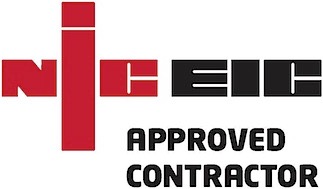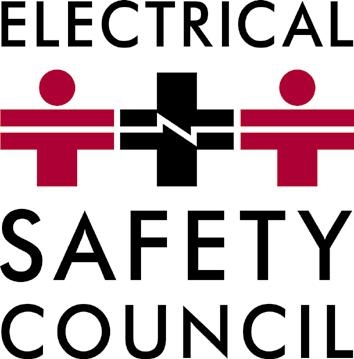Barn Rewiring in Chelmsford: What You Need to Know
July 29, 2025

When a local farmer near Writtle noticed the lights in his feed barn flickering and the circuit breakers tripping whenever he ran the grain dryer, he knew he couldn’t ignore it any longer. He called a farm electrician in Chelmsford, who discovered cracked insulation, rodent-chewed cables and an overloaded consumer unit. This isn’t a one-off story. Many barns across Essex were wired decades ago and are now expected to power modern equipment. Rewiring isn’t just a matter of replacing a few cables; it’s about keeping your livestock safe and your investment protected.
This guide explains the most common mistakes people make when rewiring agricultural buildings and how Complete Electrical Services can help you avoid them. You’ll learn about safety standards, power requirements and how to future-proof your outbuildings. Whether you’re converting a barn into a workshop, upgrading to 3-phase power for farms or simply want peace of mind, this article breaks down the essentials in clear language.
Mistake 1: Assuming any electrician can handle barn rewiring
Working on farm buildings isn’t the same as wiring a house. Barns, livestock sheds and grain stores are often damp, dusty and full of corrosive substances. The 2023 National Electrical Code notes that agricultural buildings present unique challenges: excessive dust, moisture and corrosive vapours can severely impact electrical installations. It even specifies durable cable types – such as Underground Feeder and Metal-Clad cable – because ordinary twin-and-earth simply won’t last. In the UK the same principles apply; environments with corrosive animal waste or high humidity need special materials and methods.
That’s why you should hire an agricultural electrician in Essex rather than a general tradesperson. A specialist will know how to seal enclosures against dust and moisture, choose corrosion-resistant fittings and allow for livestock safety. They’ll make sure there’s a clearly marked isolator for every piece of fixed equipment and that circuits are designed for your barn’s loads. Using a certified electrician in Chelmsford who understands farm conditions reduces downtime and helps you meet insurance and compliance requirements.
Mistake 2: Ignoring signs of outdated or unsafe wiring
Many barns still rely on wiring installed when incandescent lamps were the norm and milking machines drew little current. Over time, insulation degrades and rodents chew through cables. The Health and Safety Executive warns that contact with electricity can kill or cause serious burns, and that poor installations can lead to fires which destroy buildings, equipment and livestock. For more guidance, the Health and Safety Executive provides detailed advice on electrical safety in agriculture here. In agriculture, many incidents involve overhead lines and poorly maintained machinery.
Common signs that your barn needs rewiring include:
- Fuses blowing or breakers tripping when you run multiple tools
- Lights dimming or flickering
- Exposed cables, cracked sockets or melted plug tops
- Acrid smells or scorch marks around outlets
- No RCD protection on outdoor or damp circuits
If you notice any of these issues, don’t wait for a fault to cause a fire. A rewiring old barn project should start with an Electrical Installation Condition Report. A qualified electrician will test continuity, insulation resistance and earth loop impedance. They’ll replace aluminium or fabric-sheath wiring with modern, armoured or conduit-protected cabling, and fit consumer units with residual current devices (RCDs) to cut the power quickly if there’s a fault. This is essential for livestock safety and your own protection.
Mistake 3: Underestimating the power needs of modern agriculture
Today’s farms use equipment that draws far more current than the wiring schemes of the 1970s could ever handle. Grain dryers, milking parlours, cold stores and workshop machinery all demand stable, high-capacity supplies. Article 547 of the NEC emphasises that power distribution to agricultural buildings should come from a dedicated distribution point and include a site-isolating device for easy disconnection. This makes maintenance and emergency shut-offs simpler.
In Essex many farmers upgrade to 3-phase power for farms. Three-phase supplies provide smoother and more efficient delivery, particularly for motors. They reduce voltage drop on long cable runs and allow simultaneous use of multiple heavy-load devices. If you’re planning to install grain drying fans, automated feeders or a large workshop, talk to your electrician about a 3-phase upgrade. Upgrading typically involves:
- Applying to your Distribution Network Operator for a service upgrade
- Installing a new distribution board capable of handling higher currents
- Running armoured supply cable from the service head to the barn
- Balancing loads across phases to prevent overloading
The cost to rewire a barn in Chelmsford can range widely, from a few thousand pounds for a small outbuilding to tens of thousands for a large complex with multiple rooms and specialist equipment. Factors include the size of the barn, whether you need 3-phase power, the condition of existing wiring and whether civil works are required to run new mains. A proper survey by a trusted Chelmsford farm electrician will provide a detailed quote.
Mistake 4: Neglecting safety features and compliance
Electrical safety on farms isn’t just about preventing power cuts; it’s about protecting people, animals and property. Regulations require that circuits in damp or corrosive areas have appropriate enclosures. Article 547 specifies that equipment enclosures must be weather-proof and corrosion-resistant. The HSE advises that power cables to machines should be armoured or installed in conduit and that sockets in damp or corrosive atmospheres are protected by RCDs. In practice this means:
- Using metal or heavy-duty plastic junction boxes rated for outdoor use
- Installing dust-tight and liquid-tight fittings for flexible connections
- Protecting cables from rodents with conduit or steel trunking
- Ensuring there are enough socket outlets to avoid overloading
- Labeling and isolating each circuit clearly so power can be cut quickly in an emergency
Compliance also means regular testing. The Essex County Fire and Rescue Service also offers practical tips for reducing risks electrical safety on farms. The Electricity at Work Regulations 1989 require that installations are maintained to prevent danger. For farm buildings this includes periodic inspection and testing by a competent person and keeping records of the work. Don’t bypass fuses or use domestic extension leads in barns; they aren’t designed for the harsh conditions found in agricultural buildings.
Mistake 5: Forgetting future-proofing and efficiency
Rural electrics are evolving. Many farmers in Essex are converting barns into workshops, offices or holiday lets. Others are adding renewable energy systems, EV chargers or automated feeding and lighting controls. Planning for these changes during a rewire saves money in the long run.
Here are some ways to make your barn electrical installation future-ready:
- Install additional circuits and spare capacity in the consumer unit for later expansion.
- Run conduit or trunking that allows you to pull through extra cables without tearing down walls.
- Use LED lighting and efficient motors to reduce energy consumption.
- Provide extra outdoor lighting and damp-resistant wiring for safety and security.
- Consider integrating control systems, such as time switches or smart devices, to manage ventilation and heating.
Future-proofing also involves thinking about how you might use the space. If you intend to rent the barn as a workspace or host events, you’ll need sufficient power and data points, emergency lighting and potentially fire alarms. A qualified electrical contractor in Chelmsford will design a flexible system that supports these uses.
Our Rewiring Service
Rewiring is more than swapping out old cables; it’s a full redesign of your electrical system. As part of our rewires service, Complete Electrical Services will:
- Carry out a thorough inspection and provide a clear quotation.
- Design a layout that meets your current and future needs.
- Select materials suitable for agricultural environments – including armoured cables, weatherproof enclosures and rust-proof fittings.
- Install RCDs and surge protection to safeguard your equipment.
- Test and certify the installation so you have evidence for insurers and regulators.
Our team has decades of experience in agricultural wiring across Essex, from small stables to large dairy units. We understand the demands of rural life and work around your schedule to minimise disruption.
Ready to Upgrade Your Barn’s Wiring?
If you’re considering an electrical upgrade for agricultural barns, don’t wait until equipment fails or livestock are put at risk. Contact Complete Electrical Services for a free consultation and no-obligation quote. Call 01245 422 306 or contact us to schedule a survey. We’re based in Chelmsford and proud to be the local experts for agricultural electrical services in Essex. Let us help you keep your farm safe, efficient and ready for the future.
FAQs
How much does it cost to rewire a barn in Chelmsford?
The price depends on the size and condition of the building, the length of cable runs and whether you need a 3-phase supply. A small outbuilding may cost a few thousand pounds, while a large, complex barn with multiple rooms and specialist equipment will be more. Contact us for a tailored quote.
How long does a barn rewire take?
A simple single-storey barn may be rewired in a week, while larger agricultural buildings can take several weeks. We’ll provide a schedule and work to minimise downtime for your business.
Do I need planning permission to rewire my barn?
Generally no, but if you’re changing the use of the building (for example, converting it into a holiday let) you may need to consult the local planning authority. We can advise on compliance and liaise with your builder if required.
What is the benefit of upgrading to 3-phase power?
3-phase power provides more stable and efficient electricity for motors and heavy equipment, reducing wear and improving performance. It also allows you to run multiple high-load devices simultaneously.
How often should I have my barn’s electrics inspected?
We recommend an Electrical Installation Condition Report every five years for agricultural buildings, or more frequently if you use harsh cleaning processes or have had rodent damage. Regular inspections can spot problems before they become dangerous.
Keeping your farm’s electrical system safe isn’t just a legal requirement; it’s essential for the wellbeing of your livestock and the success of your business. By choosing a specialist agricultural electrician in Chelmsford you can be confident that your barn wiring is safe, efficient and ready for the future.



